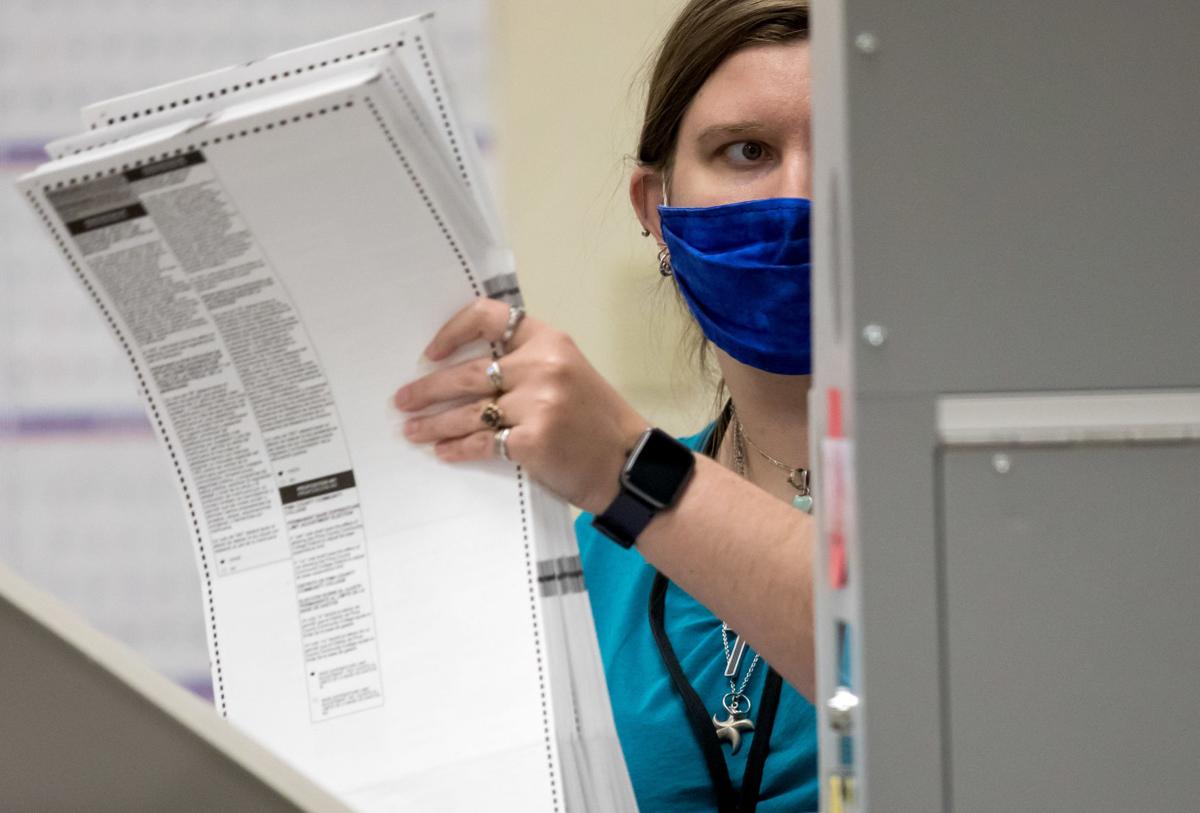PHOENIX — Insisting that a “made in USA” label means more security, state lawmakers are moving to require that all election equipment be built only with domestic components and assembled in this country.
Only thing is, there apparently are no such machines right now that meet those specifications. So Rep. Steve Montenegro, R-Goodyear, has agreed to craft his legislation so it doesn’t kick in until 2028. And even then, any equipment that counties already have would be exempt.
But even assuming a domestic manufacturer could be found by then, that’s just part of the problem.
Sen. Ken Bennett, R-Prescott, pointed out that HB 2613 would even preclude a tallying machine from having parts from elsewhere that couldn’t possibly affect the outcome of the vote, like plastic housing.
Bennett, a former secretary of state, also said the measure isn’t narrowly tailored to protect us from those who wish us ill. Even parts made in Canada, he said, would be off limits.
And as crafted, all HB 2613 requires is that the parts be sourced and the assembly be conducted in the United States. None of that precludes a foreign firm that has set up shop here — and there are plenty, including major semiconductor chip manufacturers — from meeting those requirements.
Montenegro said his measure, which already has been approved by the House may need work before it goes to the full Senate. But the bottom line, he said, is that it is designed to promote election security.
“There are conversations regarding the integrity of elections, election systems and how we approach them,” he told colleagues. And Montenegro said it’s a matter of “national security.”
What requiring all equipment to be sourced and manufactured in this country would do, he said, would make it easier to investigate complaints and issues about whether there are problems with the equipment that could have affected the reported tallies.
“If issues arise with voting machines, I think it would be easier to discover if the machine hardware were created in Birmingham or Buffalo or Boise instead of Beijing,” Montenegro said.
He said it’s not just his belief that there needs to be greater oversight which he said could be accomplished by an all-domestic requirement.
“Voting systems are designated as ‘critical infrastructure’ by the Department of Homeland Security,” he said. What that means, Montenegro said, is “strict regulation regarding component sourcing, manufacturing and production.”
That still leaves the question of whether there are machines that would comply with what his legislation requires.
Montenegro said he does not know whether there are, in fact, companies that can produce the components. But he said that should not stop lawmakers from imposing the mandate.
“There’s nothing our country can’t do,” he said. “If the companies aren’t there, I believe that if we are able to provide the policy that says we want components made in the United States when it comes to voting machines, I have full faith in the American engineering mind and strength.”
That logic did not convince Sen. Priya Sundareshan, D-Tucson. She called it the “Field of Dreams” of elections bills.
“We’re essentially saying, ‘If we require it, they will come,” Sundareshan said.
Montenegro said he doesn’t see a problem.
“Of course, the technology’s already there,” Montenegro said, pointing to the availability of machines that tabulate ballots. “It’s just being manufactured in other countries of the world.”
That led to questions from Bennett.
“What about a foreign company that just locates all of its manufacturing and assembly in the U.S.?” he asked. “Would you be OK with that?”
“I don’t know,” Montenegro responded.
But Bennett said that would be acceptable as the measure is now crafted.
Sundareshan pointed out there is nothing in the legislation that includes any financial incentives to get domestic companies to start making these machines with all-U.S. components. Montenegro said he doesn’t believe that’s necessary.
“If there is a need, I do believe the American engineering mindset would step up,” he said. And Montenegro said there are already components “that are related to what these machines do.”
Sen. Wendy Rogers, R-Flagstaff, agreed.
“We don’t need to entice companies here,” she said. And Rogers said she doubts that there would be hurdles.
“Correct me if I’m wrong,” she said. “But the technology is not rocket science to run elections.’’
Sen. Anna Hernandez, D-Phoenix, said this focus on American companies producing election equipment ignores the nature of the global economy.
“We have companies that are home-based,” she said.
“They choose to have operations overseas,” Hernandez said. “That’s jut how businesses work,” she said, whether because of tax policies or financial incentives offered by other countries.
Sen. John Kavanagh, R-Fountain Hills, was unsympathetic to those companies.
“I can only think of two reasons would have something manufactured overseas and bring it back here to sell,” he said.
“The first is, they’re attempting to circumvent our environmental laws and pollute Mother Earth,” Kavanagh said. “The second thing, they’re attempting to get cheap labor and kneecap American labor.”
Bennett said that still leaves the question of whether even parts that have nothing to do with counting, like plastic housing, have to be domestically sourced.
And then there’s the question of whether there should be a distinction among foreign countries that may be providing parts.
“I’m concerned that this bill treats any entity outside of the U.S., whether friend or foe, the same,” Bennett said. “There’s nothing about ‘enemies.’”
“We need to fix that,” said Rogers.
Senate Majority Leader Sonny Borrelli, R-Lake Havasu City, said there may be a way to separate out what is and is not acceptable. He said the legislation could be altered to allow only those parts from those countries that meet Department of Defense cybersecurity standards.
Get your morning recap of today's local news and read the full stories here: tucne.ws/morning





